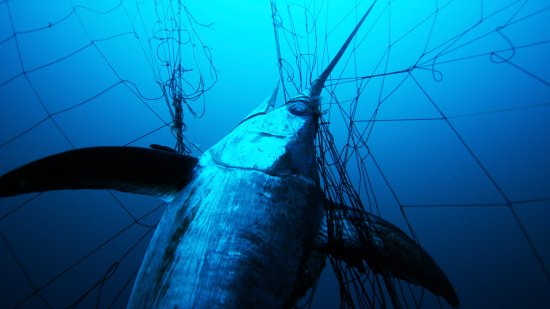
It ought to be hard for a species that occupies roughly 10% of the earth’s land to mess up 70% of the planet’s entire surface. Yet humans are well on the way to wrecking the oceans.
From climate change and melting ice caps to islands of floating garbage, we are increasingly fouling what was once the perfectly, chemically, thermally balanced womb of all earthly life. The scope of potential loss is staggering:
The oceans are the world’s largest ecosystem, home to 80% of the planet’s biodiversity, and account for more than 97% of its water. They produce nearly half the planet’s oxygen too. Lose the oceans and we lose everything.
[time-brightcove not-tgx=”true”]
Here are five ways the oceans are suffering, with dire impacts for land dwellers, that need solutions.
Bad Catch
Almost 80% of the world’s marine fish stocks are now fully exploited, overexploited or depleted, according to the U.N. Food and Agriculture Organization. The implications for food security and global economies are enormous.

Boundary Issues
Rising temperatures are remaking the map of the oceans. As polar ice retreats, the Northwest Passage could become an economically viable sea route. But consequences for pristine Arctic regions could be devastating. Increased shipping traffic could lead to more black carbon deposits on ice and snow, and higher risk of fuel leakage or spills. There’s also a risk of geopolitical tensions as nations race for control of faster shipping routes and untapped resources.

Heating Up
The world’s oceans are warming at a rate faster than previously estimated, according to a study in Science released in early January. Melting Arctic ice pours an estimated 14,000 tons of water every second into the earth’s oceans, making it the biggest contributor to rising seas. Antarctic warming is also a contributor. This iceberg calved off Antarctica, adding to rising sea levels as soon as it slipped off the land mass and began to float. Overall, according to NASA, seas are rising by around 3 mm each year.

Wasting Away
Ocean pollution—including vast amounts of plastic waste that cannot break down—is particularly hazardous for marine wildlife. The image below shows the plastic trash found in the stomach of a single sea turtle found dead on the Pacific Coast.
